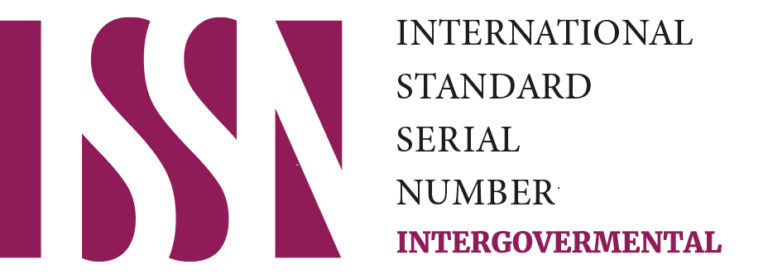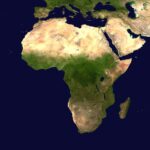ABSTRACT
Diplomacy is used to resolve conflicts through peaceful means. In cases of war, it shows at times that diplomacy has failed. Through diplomacy alliances are built and help avoid future conflicts.
This paper study undertakes to investigate the successes and failures of diplomatic efforts on African conflicts. What has worked and what has not worked to solve the unending conflicts in Africa.
(1) The study looks at the historical context of diplomacy in African conflicts as well as is current usage. The diplomatic engagements that have involved both Africans and external supporters like United Nations.
(2) This study looks at successes and failures of diplomatic efforts that include bilateral and multilateral diplomacy, global, continental and regional bodies. The real issues behind the successes and failures and the lessons that can be learned for future.
(3) The Future of diplomacy in dealing with African conflicts. Are there bright prospects regarding diplomacy in dealing with African conflicts. The new initiatives that can be taped into by the continent to end the intractable conflicts that Africa faces daily.
Overall, this research study makes a significant contribution to the study of diplomacy in the context of African conflict resolution processes. Africa remains the continent with a lot of ongoing conflicts. The need to find solutions to end these conflicts is greater than before. Imaging diplomatic solutions that can be utilized to change the conflicting political context of the continent.
1. Introduction
Current African conflicts have deep-rooted causes that vary in degree. Some of them span from the colonial era.[1] However, others stem from the current crop of African leadership.[2] The leadership that took over from the colonial era developed tyrannical rulership that caused conflicts to continue. The ethnic divisions in Africa continue to be fueling conflicts in different states.[3] Despite all these conflict challenges, Africa must forge ahead and resolve its conflicts and and come out from a continent known by deep divisions and relentless wars.[4] Diplomacy must play a key role in bringing Africa out of these conflicts.
Though practised for some time on the continent, diplomacy in Africa is sometimes recorded as working in some aspects.[5] It would be good to understand how diplomacy has helped the continent to present state, particularly looking at conflict resolution. On the other hand in some cases however, diplomacy has not worked very well to end the African conflicts.[6] There is need to understand why diplomacy is failing to end African conflicts post-colonial era when it worked during decolonization.
The essay looks at the nature of these current African conflicts and the successes and failures of diplomacy in resolving them.
2. The Nature of Current African Conflicts
African conflicts have been waged for a long time since independence from colonial powers, as demonstrated in the Congo (1960–65), Angola (1975–92), and Chad (1968–84).[7] The continued conflicts in different parts of the continent need to have one concrete explanation. Several causes have been documented regarding the causes. Among them is the continued blaming of the former colonial powers as perpetrators of continued conflicts. As indicated that neo-colonialism others call colonialty contributes to many conflicts in African continent.[8] The boundaries created need to precisely show the exact demographic composition of these states. The example of African conflicts influenced by issues of boundaries, in Western Sahara, Algeria and Polisario Front against Morrocco since 1975, Ethiopia and Eritrea, Sudan and South Sudan. However, such blame can still come back to the African states themselves.[9]They now have the independence and the ability to reshape the boundaries in the best way possible to show the reality of the ethnic divisions. Ethnic diversity is another challenge that feeds into the recurrent African conflicts. There are so many ethnic groups that have failed to integrate to become one nation-state in every African state. That is another breeding ground for conflicts. African leaders continue to be a significant cause of many of these conflicts. They are very corrupt and refuse to relinquish power. The case of Haille Selase 44 years, Moamer Kadhafi 42 years, Omar Bongo Ondimba governed oil-rich Gabon for 41 years, Angola’s Jose Eduardo dos Santos 38 years, just to mention a few.[10] They try to use the Monarchy system in an era of republic states where democracy is practiced in stable states.
“The African continent continues to experience a high incidence of violent conflict.”[11] Mohd Huda and Muchatuta (2022) indicate, “The recurrent landscape of conflicts in Africa due to weak political institutions and structures has also played a major role.”[12] Current African leaders thrive on weak political institutions to perpetuate their stay in power with minimum opposition. The following leaders changed their constitutions to extend their stay in power:
“Teodoro Obiang of Equatorial Guinea He is the second president of Equatorial Guinea since August 1979; Jose Eduardo, Dos Santos of Angola, ruled for more than 35 years; Paul Biya of Cameroon, Gen Yoweri Museveni of Uganda since 1986; Idriss Deby of Chad, Gen Paul Kagame of Rwanda, Ismaïl Omar Guelleh-Djibout, Gnassingbé and Faure Eyadéma-Togo, Robert Mugabe of Zimbabwe since 1980 until a military coup in 2017.”[13]
These were and are among the African leaders that are respected by the other African states. Their continued stay in power is not considered evil by those who admire them. Amongst them, there are conflicts in Chad, Cameroon, and Uganda which are never settled. Such actions of “Changing the constitution to eliminate term and/or age limits for presidents and allow the incumbent president to unconstitutionally extend his mandate has been referred to as a constitutional coup.“[14] It continues to be a source of conflict in many African states. Klobucista Claire (2021) mentions, “Strong correlations exist between sub-Saharan Africa’s entrenched leadership and its security challenges, including conflict or instability.” That is why to a great extent, a combination of weak political institutions and prolonged stay in power breeds much discontent that ends in many conflicts.
There are current conflicts in Nigeria with Boko Haram, Somalia, Ethiopia, DRC, Central African Republic (CAR), Libya, Sudan, Morrocco, and Western Sahara. These conflicts are a result of the various challenges discussed above.
The determination to resolve multiple, some intractable, conflicts simultaneously stretches the diplomatic resources of regional organizations and the African Union (UA).[15] Conflicts resolved tend to be outweighed by new conflicts in Africa. The intractable conflicts fail to be resolved and continue to be a thorn in the flesh of Africa.
3. Diplomatic Efforts in African Conflicts
Diplomacy has been around for a long time yet it is still used to solve global conflicts. Holsti (1995), as quoted by Akokpari (2016), depicts it as a set of “ideas or actions designed by policymakers to solve a problem or promote some change in the policies, attitudes or actions of other states, in non-state actors (e.g. terrorist groups) in the international economy or the physical environment of the world. Diplomacy takes the form of negotiations to avert conflicts and wars. It takes different forms, such as negotiations, bargaining, mediation, and various ways to end conflicts. Some forms include “non-coercive approaches”, such as pure diplomacy, which aims to resolve conflicts. On the other hand, “mixed diplomacy is characterized as combining coercive and non-coercive methods.”[16] Is conducted through bilateral or multilateral means, secret or open, and negotiators can opt for round table or shuttle diplomacy based on the conditions under which negotiations are conducted. Diplomacy may apply in both international and domestic environments. In the African context, therefore, diplomacy may include interaction between the state and actors both within and outside its borders.
As discussed later, the rhetoric that informs African diplomacy is its history of marginalization and the continent’s relations with the rest of the world, which suggests continental vulnerability.[17] On the other hand, contemporary African diplomacy is not only characterized by negative encounters but also encompasses Africa’s traditional values and the respect for cultural tradition and authority, preference for collective well-thought-off decisions and an emphasis on prioritizing the community instead of individuals.[18] All these factors affect the development of well-functional African diplomatic processes to deal effectively with its continental conflict challenges and outside influence.
4. Successful Diplomatic Efforts in Current African Conflicts
Despite the continent’s persistent conflicts, significant records show some conflicts that have ended due to diplomatic efforts. These diplomatic efforts include multilateral by the UN, AU, regional bodies and bilateral between the conflicting parties. Cultivating successful diplomatic efforts to end African conflicts can take the continent to another level. It has been documented that “Diplomacy has played a critical role in transforming Africa’s future. From the end of apartheid in South Africa to the historic peace deals in Sudan, Somalia, and the Central African Republic, Diplomacy has opened up new avenues for cooperation and reconciliation.”[19] Africa must shift towards such a positive diplomatic trend to end its conflicts. Historically African “multilateral diplomacy was developed because of the continent’s desire for liberation from foreign subjugation” (Mohd and Muchatuta 2022). Not only are diplomatic efforts shaping Africa well regarding conflict resolutions but “Africa’s collective diplomacy has proved to be successful with issues of development through negotiating with IMF and World Bank.”[20] However, some negotiations, like the Economic Structural Adjustment Programmes, left the continent lousy.
The continental body AU has played a significant role in diplomatic engagements to end conflicts on the continent. The AU has been a principal mediator in most of Central Africa and the Great Lakes conflicts. South Africa, a regional leader in southern Africa, has played a mediatory role on behalf of the AU in several conflicts in Burundi, Zimbabwe, the Democratic Republic of Congo (DRC), Lesotho and the Central African Republic (CAR).[21]
Success in these diplomatic missions shows that such efforts can yield positive results. Similarly, “the Economic Community of West African States (ECOWAS) played a crucial role in the postelection instability and the attempted coup in the Gambia in 2017.”[22] These recorded diplomatic successes in resolving conflicts on the continent are a good ground for Africa to develop a robust diplomatic system to create sustainable peace.
4.1. Past and Present Multilateral Diplomacy on African Conflicts and their Positive Results
The work of multilateral diplomacy in Africa saw a significant reduction and an end to conflicts. It involved the continental body Organization of African Unity (OAU), later transformed into the AU and the United Nations UN. Some notable conflicts that ended with the diplomatic assistance of OAU and the UN include the end of Apartheid South Africa, where the UN played a pivotal role. “Diplomatic efforts by the international community, particularly the United Nations, played a critical role in ending apartheid and promoting a peaceful transition to a democratic government.”[23] The UN managed to end a conflict that took more than 27 years. One wonders what the UN efforts did to end conflicts in Africa, now that it relies more on peacekeeping missions than diplomatic engagements to end the conflicts.
The UN diplomatically supported the end of Apartheid in Namibia by South Africa’s control, which is an excellent achievement to be applauded.[24] In Africa. With the constant conflicts in Africa, such achievements must be more significant. Other players also managed to bring some peace. “Diplomatic role of Eritrea’s Arab allies was significant in ending the conflict”[25] That started in 1998 until 2018. The regional and international diplomatic community’s joint efforts largely contributed to the peace deal’s declaration. So, these diplomatic efforts managed to end a conflict that was bitter and difficult to stop. As assessed, no peace deal announcement by Ahmed and Ethiopia with Eritrea “without diplomatic efforts.”[26] The Ethiopia-Eritrea peace deal is hailed to be a very “positive development in a region bedeviled with some of Africa’s intractable conflict, including the Somalian conflict.”[27] The Ethiopian-Eritrean peace deal showed that concerted international, allies and regional diplomatic efforts could bring fruitful peace solutions to Africa’s conflicts. There is a need to continue drumming up support regarding using all diplomatic channels on most current African conflicts. The reason behind such thinking is that “Diplomacy remains one of Africa’s best shots in conflict resolution.”[28] It is also a less costly way in terms of human lives compared to supporting conflicting parties with arms. After all, there is no winner in any conflict lest they eventually come to negotiations after wasting and losing a lot of life and resources.
Such positive engagements and lasting peace showed that OAU, now AU came from far to gain respect among members of its own. Similarly, regional bodies have played a key role in diplomatic efforts to end conflicts on the continent. Southern Africa Development Community SADC worked in Zimbabwe, DRC, and Burundi with positive results in averting further conflicts. SADC used former leaders Thabo Mbeki in Zimbabwe, the UN, and SADC in Burundi.[29] However, SADC efforts in Burundi and DRC did not bring lasting peace, as discussed below.
In West Africa Economic Community for West African States (ECOWAS) played a significant diplomatic role in bringing peace to Sierra Leone, Liberia and Ivory Coast. The regional body managed to work together with AU and the UN. Such multilateral diplomacy brought some lasting peace to these troubled West African countries.
4.2. Successful Bilateral Diplomatic Efforts
The end of the Ethiopia and Eritrea war came through rapprochement with significant bilateral diplomatic negotiations between the two countries. Ethiopia and Eritrea declare war ‘has come to an end.’[30] The two countries had to agree on compromises to end the conflict. Had the two countries not taken heed to end the conflict, it could still be currently wagged. The other conflict that had great bilateral success is between Sudan and South Sudan. The Comprehensive Peace Agreement (CPA) ended the bitter war in 2005.[31] Though AU and UN bodies also played a pivotal role, the two warring parties agreed to negotiate diplomatically to end the war.
5. Failed Diplomatic Processes in Current African Conflicts
Although diplomatic efforts have brought some success in some African conflicts, others have failed to take effect. The pace at which diplomatic measures have been applied to end conflicts remains beyond satisfaction. The continued “prevalence of conflicts” in Africa “present challenges to diplomacy.”[32] It has led to indications that calling for “diplomatic efforts should be increased and vigorously applied to conflicts in Congo, Central African Republic, Sudan and Libya.”[33] Such sentiments show that whatever has been done is not enough, and much has to be done to end these current conflicts. There is much work regarding ending conflicts in Africa. Many conflicts in different regions still challenge the current state of the continent. “By the beginning of 2014, no fewer than six African countries, including the CAR, DRC, Libya, Mali, Nigeria and Somalia, were experiencing full-scale conflict.”[34] These conflicts have failed to end despite some international, continental, and regional diplomatic engagements. The continental body “AU failed to resolve the Libyan conflict in 2011; Somalia’s peace for over two decades, conflict continues in Eastern DRC and in Northern Nigeria, where Boko Haram, the militant Islamist group, has proved a hard nut for the Nigerian government to crack.” A hodgepodge of issues impedes African diplomacy, as Huda and Muchatuta posts post below:
It is important to note that the failures in African Diplomacy are not only attributed to external actors alone but also visible in intra-African Diplomacy. Diplomacy in Africa has experienced some of its failures due to a convergence of factors such as the quality of Diplomacy and mediators; the ubiquity of conflicts; the continent’s lack of international influence; Africa’s dependence on external actors and; subsequent lack of assertiveness and the inability to stand up to errant leaders within the region whose actions threaten good governance and regional security.[35]
The above quote calls for the need to dissect all continental diplomatic engagements, measure their success and failure, take lessons from both, and pave the way forward. Once dissected, Africa will need more introspection and sort out its mess by challenging its weaknesses against growth. The growth should be on the diplomatic front because, as Akokpari (2016) stated, “diplomatic skills in Africa are usually tested during conflicts and threats to regional security.” The diplomatic test usually shows negative results since the conflicts are not resolved.
5.1. Failed International, Continental and Regional Diplomatic Engagements
Diplomatic efforts at all levels have yet to help Africa overcome its persistent conflicts. The AU continental diplomatic work in West Africa to end a conflict in Ivory Coast was unsuccessful. The AU representative diplomat Thabo Mbeki’s proposal of a GNU in Ivory Coast in 2010 was rejected by the incumbent Alassane Ouattara and ECOWAS, the regional body. In the case of Nigeria, “both the Nigerian government and ECOWAS appear incapable of mitigating the seemingly intractable insurgency of Boko Haram.”[36] The current situation shows that conflicts in Africa are still far from ending.
The failure of diplomacy to operate and end conflicts in Africa is attributed to Africa’s “evident lack of diplomatic clout on the global stage, which has made it malleable and prone to pressures from external actors.”[37] It is of grave concern why Africa continues to be manipulated by the outside world, yet it suffered colonial dominance similar to South America and Asian countries. The challenge, as argued, is that Africa lacks “vital instruments needed to enhance its prospects of attaining diplomatic success.”[38]
There are significant limitations to tangible conflict resolution diplomacy in Africa, which includes conflicts in the Ivory Coast in 2010 and Libya in 2011, Boko Haram in Nigeria and currently, the Sudan war. The continent could have learned from the past colonial conflicts to develop a comprehensive diplomatic system to end its continuous wars. The African region remains affected by these persistent conflicts, which have compromised the credibility of its diplomacy. As such, even the current African leader’s peace mission delegation to Europe cannot have much respect because of what is happening back home. As Mohd, Ikbal and Muchatuta (2022) admit, “The main cause of diplomatic failures is the absence of effective mechanisms in place.”
The other factor is that even where “mediation is utilized as a tool for diplomacy, negotiators are usually unskilled and lack the adequate negotiating skills and tend to be inexperienced about the background of conflict.”[39] Thus efforts to resolve conflicts are not tackled by committed and experienced diplomats.
The AU’s use of former heads of state as mediators and negotiators tends to favour and “protect errant leaders in the name of African solidarity.”[40] The case of Thabo Mbeki’s mediation in Zimbabwe kept Robert Mugabe in power, he wanted to try the same tactic in Ivory Coast, and it was rejected. This type of diplomacy works as diplomatic efforts to save each other’s face. On the other hand, Africa’s inability to criticize liable leaders and peers also has limited diplomatic success. Several notable peace agreements in Africa have brought about temporary peace but have failed to tackle structural violence that continues to occur in communities.[41]As a result, conflicts continue to erupt without conclusive resolutions.
The recent visit to Ukraine and Russia by African leaders dubbed Peace Mission has been viewed as an impactful diplomatic delegation to end the Ukraine-Russia war. It is a good conflict resolution gesture that will go down the annals of history. However, the only challenge the African leaders have exposed is that they have left their houses burning and go on to help their neighbour to extinguish the fire. They have left Sudan burning with no African heads of state delegation sent to try and bring that war to an end. Only America and Saudi Arabia are reported as engaging the warring parties for peace. Where are the African leaders in all these diplomatic efforts? They have left Somalia, DRC, Chad, CAR, and Nigeria; all these are current conflicts that need such type of delegation to show their quest for real peace in Africa. It does leave one with many questions. Among the delegation’s needs for the end of the Russia-Ukraine war is that the war is affecting Africa, as the South African President told the Russian President said to stop the war because “This war is hurting the African continent.”[42] Yes, it is affecting Africa regarding food security due to the shortage of wheat grain from Ukraine. Nevertheless, the African wars affect Africans more than those outside Africa. Africa is an incredible powerhouse that can produce food to support itself[43] including exporting to the outside world if its leadership can end wars and concentrate on economic development. What is needed is for Africa to use the right technology and produce for the continent,[44] rather than going to beg in Europe to end their wars to gain access to the wheat produced in Ukraine.
It is the first time the African leaders have organized such a big delegation to go on a peace mission. Nevertheless, with so many conflicts in Africa, not once did African leaders organize a big leadership peace mission delegation to go and confront the warring parties within the continent. Such a gesture might be received with mixed reactions by different quarters. From an African diplomatic lens perspective, that gesture was a failure in diplomatic engagements in Africa, where we have more wars than Europe. Every effort should start in Africa and then can spread to other continents when good successes have been recorded.
5.2. International, Continental and Regional Failed Diplomatic Engagements in Intractable Conflicts
The African continent has seen the most protracted conflicts that have failed to end. Various diplomatic efforts that include multilateral UN, AU, regional bodies, and bilateral efforts have all come to non-fruition. Even violent military confrontations have failed to bring these protracted conflicts to an end. These conflicts include Somalia, DRC, Central African Republic (CAR), the fragile Sahel region encompassing Algeria, Chad, Mali, Mauritania, and Libya, with the constant conflicts with rebels and Al Qaeda of the Islamic Maghreb.[45] These perennial conflicts have dragged the African continent backwards in terms of development. In addition, there is the Morrocco Western Sahara, Nigeria Boko Haram. The Economic African Community (EAC) must still unite and solve the DRC conflict as a regional block. The French Ambassador to Tanzania, Hahjlaoui, reiterated that the EAC must put aside their interests and solve the DRC issue.[46] African leaders need to improve such cooperation to resolve their continental conflicts.
The analysis shows that both regional bodies ECOWAS, SADC and EAC, and the continental body AU and the global UN still need to find lasting diplomatic solutions to these conflicts. They have exhausted all their efforts to end the conflicts despite their taking a massive toll on human lives. On the other hand, the belligerents in the conflicts have not reached a good time for a stalemate. As Zartman (2001) pointed out, “The idea of a ripe moment lies at the fingertips of diplomats.” “Ripeness of time is one of the absolute essences of diplomacy.”[47]However, the big question is when such a hurting stalemate can be reached for diplomatic efforts, including mediation, to take effect for lasting peace.
6. Towards The Future of Diplomatic Efforts on African Conflicts
There is great hope for diplomatic engagements to end conflicts in Africa. A concerted effort is needed by the international UN, continental AU, and regional groupings to work together for lasting peace solutions. All resources and efforts should be channelled towards diplomatic efforts and starve military support and economic interests. Bilaterally and multilaterally, Africa needs to grow and shake off the war mantra that has not brought good providence to the continent. Where diplomacy has been given a chance, it has worked, and where it has not been, it has failed. Much work still lies ahead for the African continent.
The current ethnic composition of African states has much diplomatic work to be done. There is a need to remove the tendency towards promoting ethnic communities and advocate for real nationalistic aspirations. Such action can help Africa to move towards continental integration. Once nation-states are built, diplomacy can be functional between nation-states and the formed regional groupings. Ultimately the AU can one day become a reality and not the current pipe dream it is still operating in.
The awakening of African leaders to champion diplomacy and conflict resolution in Europe between Russia and Ukraine, can be taped at home. It is a great diplomatic initiative that should be practiced in the continent. The African diplomatic heads of states to diplomatically call for peace through visiting the fighting states in Africa. That will be a model and a true sense of the need to end the continued African wars. Since charity begins at home, such an initiative can go a long way to show that African leaders indeed are the real champions of their own diplomatic peace initiatives.
7. CONCLUSION
Different factors cause the current African conflicts. As discussed, these factors range from how Africans behave, which is a significant factor in the conflicts. The colonial past and its influence are still quoted as another challenge to the mix. However, that notion is always tricky because Ethiopia, the only African country not colonized, is one of the countries in constant conflict. The African leadership style plays a significant role in most conflicts as the leaders do not want to relinquish power. At the same time, these leaders do not put sound governance systems for the development of their countries. External factors must be considered as Africa remains a resourceful continent, mostly with untapped natural resources. Many Western and now-joined Asian countries, especially China, continue to scramble for Africa’s resources, and they benefit more during the chaos created by the conflicts. The global growing terrorism has not spared the continent, with different groups causing havoc in the west in Nigeria, Boko Haram, and East in Somalia, Al Shabab, spreading down to Mozambique. All these factors continue to influence and fuel conflicts on the continent.
Ethnicity is a great cause for concern regarding many African conflicts. Africa needs to graduate from ethnic divisions towards actual nation-states. Promoting one language system can assist much like what Tanzania did with Swahili. Promoting indigenous languages, like Zimbabwe is doing, will not help build one nation-state.
However, diplomacy in Africa, which is as old as the African states, is a means that could be used to end these conflicts. The success of diplomatic engagements on the continent by the African states and outside players is piecemeal. More diplomatic engagements are needed at all levels down to the grassroots. The diplomatic efforts established need to be more sustainable and long-lasting. African diplomatic failures look significant. Conflicts that are recorded as resolved diplomatically resurface in another form. That leaves one to conclude that current African conflicts have other fissures that point significantly to the failure of diplomacy.
REFERENCES AND BIBLIOGRAPHY
Aduku, A. A. and Okolo, I. B. Early Warning, Preventive Diplomacy and The Management of Arms Conflicts in Africa: An Exposition of Conflict Management Strategy of The African Union. 2015. Sacha & Diamond, England, United Kingdom. www.sachajournals.com.
Africanews with AFP. Holding on to power: Africa’s longest-serving leaders. Last updated: 21/04/2021. https://www.africanews.com/2021/04/21/holding-on-to-power-africa-s-longest-serving-leaders/
Akokpari, John. The Challenges of Diplomatic Practice in Africa. Journal for Contemporary History. 2016. https://doi.org/10.18820/24150509/jch.v41 i1.1.
Aljazeera News. War in Ukraine must stop, South Africa’s Ramaphosa tells Putin. Russia-Ukraine war. 17 June 2023. https://www.aljazeera.com/news/2023/6/17/war-in-ukraine-must-stop-south-africas-ramaphosa-tells-putin.
Aljazeera News. Ethiopia and Eritrea declare war ‘has come to an end Leaders of Horn of Africa nations sign a joint peace agreement, officially ending decades of diplomatic and armed strife. Published On 9 Jul 2018. https://www.aljazeera.com/news/2018/7/9/ethiopia-and-eritrea-declare-war-has-come-to-an-end.
Amnesty International. Sub-Saharan Africa: The devastating impact of conflicts compounded by COVID-19. April 7, 2021. https://www.amnesty.org/en/latest/news/2021/04/subsaharan-africa-the-devastating-impact-of-conflicts-compounded/
Asiedu Michael. Diplomacy, The Eritrea-Ethiopia Peace Deal and its Implications. Policy Brief No. 60. January 2019. Global Political Trends Center GPoT. https://www.jstor.org/stable/resrep19344?seq=1.
Bande Tijjani Muhammad. The United Nations and Multilateral Diplomacy: The Journey so Far and The Challenges Ahead. 23 Jul 2020. – Non- Verbatim –Statement by H.E. Tijjani Muhammad Bande, President of the 74th Session of the United Nations General Assembly. 23 July 2020. https://www.un.org/pga/74/2020/07/23/the-united-nations-and-multi-lateral-diplomacy-the-journey-so-far-and-the-challenges-ahead/
Barkawi Tarak. Diplomacy, war and world politics from Part 1 Making of International Institutions. Published online by Cambridge University Press: 05 September 2015. https://www.cambridge.org/core/books/abs/diplomacy-and-the-making-of-world-politics/diplomacy-war-and-world-politics/E2E233F953A6680067EEE6DEB00CCD36
Basagic Zenja. The role of the United Nations in making progress towards peace in Burundi. July 2007. https://www.diplomacy.edu/wp-content/uploads/2021/06/23082010104120_Basagic_28Library29-1.pdf.
Britannica. The 2005 Comprehensive Peace Agreement. https://www.britannica.com/place/South-Sudan/Continued-problems-with-Sudan
Clausen Maria-Louise. When peace kills politics: international intervention and unending wars in the Sudans. International Affairs, Volume 98, Issue 2, March 2022, Pages 800–801, https://doi.org/10.1093/ia/iiac012
East African Community. French Government commits to supporting the EAC-Led process in DRC. 06 December 2022. Posted in International Relations. https://www.eac.int/press-releases/151-international-relations/2694-french-government-commits-to-support-eac-led-process-in-drc.
Gilpin Raymond (n.d.) Understanding the Nature and Violent Origins of Conflict in Africa. https://africacenter.org/wp-content/uploads/2019/05/Understanding-the-nature-and-origins-of-violent-conflcit-in-Africa-Raymond-Gilpin.pdf
Joy. From Conflict to Cooperation: How Diplomacy is Reshaping Africa’s Future. African Peace. Providing a friendly platform towards achieving peace in Africa. Sun. Jun 11th, 2023. News. https://africanpeace.org/from-conflict-to-cooperation-how-diplomacy-is-reshaping-africas-future/
Kalema Stephen, 9 African Presidents who changed their countries’ constitutions to extend their stay in power. 2022. National News. https://www.watchdoguganda.com/news/20220115/128255/9-african-presidents-who-changed-their-countries-constitutions-to-extend-their-stay-in-power.html#:~:text=9%20African%20Presidents%20who%20changed%20their%20countries%E2%80%99%20constitutions,8.%20Gnassingb%C3%A9%20and%20Faure%20Eyad%C3%A9ma-Togo%3A%20…%20More%20items.
Klobucista Claire. Africa’s “Leaders for Life” 2021. Council on Foreign Relations. Last updated June 30, 2021. 12:15 pm (EST). https://www.cfr.org/backgrounder/africas-leaders-life.
Laub Zachary and Masters Jonathan. Al-Qaeda in the Islamic Maghreb. Council on Foreign Relations. March 27, 2015, 8:00am (EST). https://www.cfr.org/backgrounder/al-qaeda-islamic-maghreb.
Makhanya Mandla. How neo-colonialism wreaks havoc in Africa. 17 October 2019. Daily Maverick. https://www.dailymaverick.co.za/opinionista/2019-10-17-how-neo-colonialism-wreaks-havoc-in-africa/
Mhaku Mukum John Threats to democracy in Africa: The rise of the constitutional coup. Friday, October 30, 2020. https://www.brookings.edu/blog/africa-in-focus/2020/10/30/threats-to-democracy-in-africa-the-rise-of-the-constitutional-coup/
Mohd Huda, Mohd Ikbal, Muchatuta, Erica Thandiwe. AFRICAN DIPLOMACY ISSUES AND CHALLENGES. Centre For History, Politics and International Affairs, Faculty of Social Sciences & Humanities, University Kebangsaan Malaysia. Journal of Positive School Psychology. 2022, Vol. 6, No. 5, 2137 – 2146.
Norwich University Online. Five Major African Wars and Conflicts of the Twentieth Century. September 4th 2017. https://online.norwich.edu/academic-programs/resources/five-major-african-wars-and-conflicts-of-the-twentieth-century
Ottoh Ferdinand O. Ethnic Identity and Conflict in Africa. 06 October 2016. The Palgrave Handbook of African Politics, Governance and Development. https://link.springer.com/chapter/10.1057/978-1-349-95232-8_20
Plaizier Wim. 2 truths about Africa’s agriculture. Jan 22, 2016. Davos 2016. Africa Parks network. https://www.weforum.org/agenda/2016/01/how-africa-can-feed-the-world/
Sander Philipp. Africa could feed itself with the right infrastructure. 06/13/2022 June 13, 2022. https://www.dw.com/en/africa-could-feed-itself-with-the-right-infrastructure/a-62113761.
Schmidt Elizabeth. Conflict in Africa. The Historical Roots of Current Problems. Jul 26, 2016. https://www.historians.org/research-and-publications/perspectives-on-history/summer-2016/conflict-in-africa-the-historical-roots-of-current-problems
Shah Anup. Conflicts in Africa Introduction. Global Issues. Socio, Political, Economic and Environmental Issues that affects us all. Wednesday May 12, 2010. https://www.globalissues.org/article/84/conflicts-in-africa-introduction
Spies, Yolanda K. 2018. African Diplomacy. In the Encyclopedia of Diplomacy, G. Martel (Ed.). https://doi.org/10.1002/9781118885154.dipl0005.
Srinivasan Sharath. Unending: Cycles of War, Intervention and Making and Breaking Peace. August 2021. https://academic.oup.com/book/39808/chapter-abstract/339926270?redirectedFrom=fulltext
The Conversation. 60 years of African unity: what’s failed and what’s succeeded. Academic rigour, journalistic flair. Published: May 24, 2023, 7.47am SAST. https://theconversation.com/60-years-of-african-unity-whats-failed-and-whats-succeeded-203935.
Zartman, William I. Ripeness: The Hurting Stalemate and Beyond, in Paul Stern and Daniel Druckman, eds., International Conflict Resolution after the Cold War. National Academy Press, 2000.
Zartman William I. The Diplomacy of African Boundaries
Chapter. First Online: 14 May 2019. Part of the Pioneers in Arts, Humanities, Science, Engineering, Practice book series (PAHSEP, volume 23) https://link.springer.com/chapter/10.1007/978-3-030-06079-4_25
Zartman, William I. The Timing of Peace Initiatives: Hurting Stalemates and Ripe Moments1, The Global Review of Ethnopolitics Vol. 1, no. 1, September 2001, 8-18, School of Advanced International Studies, Johns Hopkins University.
[1] Shah Anup. Conflicts in Africa Introduction. Global Issues. Socio, Political, Economic and Environmental Issues that affects us all. Wednesday May 12, 2010.
[2] Amnesty International. Sub-Saharan Africa: The devastating impact of conflicts compounded by COVID-19. April 7, 2021.
[3] Ottoh Ferdinand O. Ethnic Identity and Conflict in Africa. 06 October 2016. The Palgrave Handbook of African Politics, Governance and Development.
[4] Clausen Maria-Louise. When peace kills politics: international intervention and unending wars in the Sudans. International Affairs, Volume 98, Issue 2, March 2022.
[5] Bande Tijjani Muhammad. The United Nations and Multilateral Diplomacy: The Journey so Far and The Challenges Ahead. 23 Jul 2020.
[6] Akokpari, John. The Challenges of Diplomatic Practice in Africa. Journal for Contemporary History. 2016.
[7] Schmidt Elizabeth. Conflict in Africa. The Historical Roots of Current Problems. Jul 26, 2016.
[8] Makhanya Mandla. How neo-colonialism wreaks havoc in Africa. 17 October 2019. Daily Maverick.
[9] Zartman William I. The Diplomacy of African Boundaries
Chapter. First Online: 14 May 2019.
[10] Africanews with AFP. Holding on to power: Africa’s longest-serving leaders. Last updated: 21/04/2021.
[11] Aduku, A. A. and Okolo, I. B. Early Warning, Preventive Diplomacy and The Management of Arms Conflicts in Africa: An Exposition of Conflict Management Strategy of The African Union. 2015, 29.
[12] Mohd Huda, and Muchatuta, Erica Thandiwe. African Diplomacy Issues and Challenges. Journal of Positive School Psychology. 2022, Vol. 6, No. 5, 2144.
[13] Kalema Stephen, 9 African Presidents who changed their countries’ constitutions to extend their stay in power. 2022. National News.
[14] Mhaku Mukum John Threats to democracy in Africa: The rise of the constitutional coup. Friday, October 30, 2020.
[15] Akokpari, John. The Challenges of Diplomatic Practice in Africa. Journal for Contemporary History. 2016, 9.
[16] Mohd Huda, Mohd Ikbal and Muchatuta, Erica Thandiwe. African Diplomacy Issues and Challenges. Journal of Positive School Psychology. 2022, Vol. 6, No. 5, 2138.
[17] Spies, Yolanda K. 2018. African Diplomacy. In the Encyclopedia of Diplomacy, G. Martel (Ed.).
[18] Ibid.
[19] Joy. From Conflict to Cooperation: How Diplomacy is Reshaping Africa’s Future. African Peace. Providing a friendly platform towards achieving peace in Africa. Sun. Jun 11th, 2023.
[20] Ibid., 2023.
[21] Ibid., 2023.
[22] Ibid., 2023.
[23] Ibid., 2023.
[24] Bande Tijiani Mohammed. The United Nations and Multilateral Diplomacy: The Journey so Far and The Challenges Ahead. 23 Jul 2020.
[25] Asiedu Michael. Diplomacy, The Eritrea-Ethiopia Peace Deal and its Implications. Policy Brief No. 60. January 2019, 4.
[26] Ibid., 2019, 4.
[27] Ibid., 2019, 8.
[28] Ibid., 2019, 8.
[29] Basagic Zenja. The role of the United Nations in making progress towards peace in Burundi. July 2007.
[30] Aljazeera News 2018.
[31] Britannica. The 2005 Comprehensive Peace Agreement. https://www.britannica.com/place/South-Sudan/Continued-problems-with-Sudan
[32] Akokpari, John. The Challenges of Diplomatic Practice in Africa. Journal for Contemporary History. 2016, 9.
[33] Ibid., 2016, 7.
[34] Ibid., 2016, 9.
[35] Mohd Huda, Mohd Ikbal and Muchatuta, Erica Thandiwe. African Diplomacy Issues and Challenges. Journal of Positive School Psychology. 2022, Vol. 6, No. 5, 2138.
[36]Mohd Huda, Mohd Ikbal and Muchatuta, Erica Thandiwe. African Diplomacy Issues and Challenges. Journal of Positive School Psychology. 2022, Vol. 6, No. 5, 2138.
[37] Ibid., 2022, 2142.
[38] Ibid., 2022, 2142.
[39] Ibid., 2022, 2143.
[40] Ibid., 2022, 2143.
[41] Mohd Huda, Mohd Ikbal and Muchatuta, Erica Thandiwe. African Diplomacy Issues and Challenges. Journal of Positive School Psychology. 2022, Vol. 6, No. 5, 2144.
[42] Aljazeera News. War in Ukraine must stop, South Africa’s Ramaphosa tells Putin. Russia-Ukraine war. 17 June 2023.
[43] Plaizier Wim. 2 truths about Africa’s agriculture. Jan 22, 2016. Davos 2016. Africa Parks network.
[44] Sander Philipp. Africa could feed itself with the right infrastructure. 06/13/2022 June 13, 2022.
[45] Laub Zachary and Masters Jonathan. Al-Qaeda in the Islamic Maghreb. March 27, 2015, 8:00am (EST).
[46] East African Community. French Government commits to supporting the EAC-Led process in DRC. 06 December 2022.
[47] Zartman, William I. Ripeness: The Hurting Stalemate and Beyond, in Paul Stern and Daniel Druckman, eds., International Conflict Resolution after the Cold War. National Academy Press, 2000, 227.






